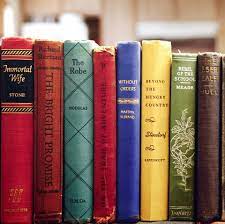It is no accident that this book is a bestseller. Essentially, it is a self-help book presented in fictional form—and the fiction is of high quality without being great literature. The novel gently guides the reader through personal failure, coping with death and loss, and dealing with guilt, all in a mellow, compassionate way. A touch of humour and a dose of the occult are woven in, which the reader may take seriously or not.
Henwood’s satirical strength shines when the wellness industry enters the picture. The pages devoted to the main character’s conversations with her boss—the owner of an organic products (or rather, “experiences”) company—are hilarious.
Her most moving prose appears toward the end of the book, when Alzheimer’s and death become part of everyday reality and real pain must be faced in a gracious, unsentimental way. Finally, the author offers the reader one last lifeline with the suggestion that “no one ever leaves this world completely.” You may choose to believe this literally, or simply take it as a comforting metaphor of remembrance.
